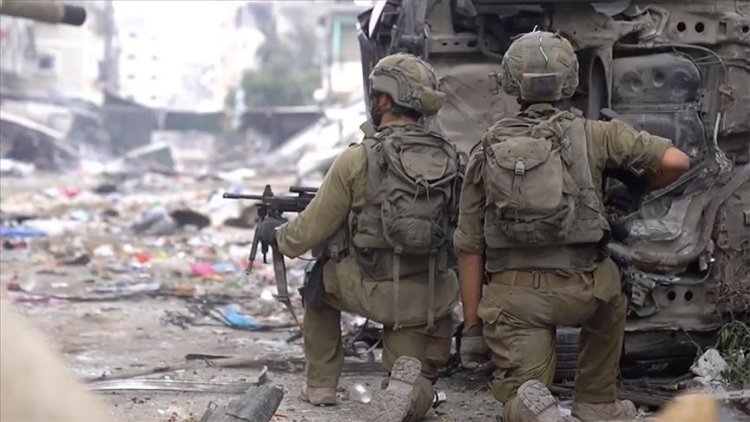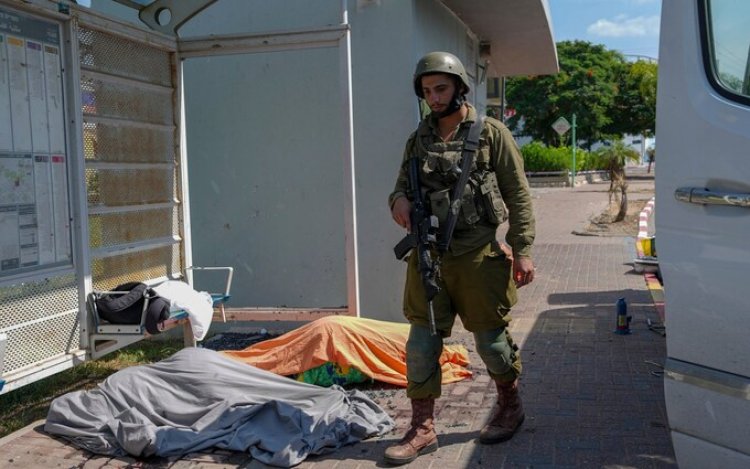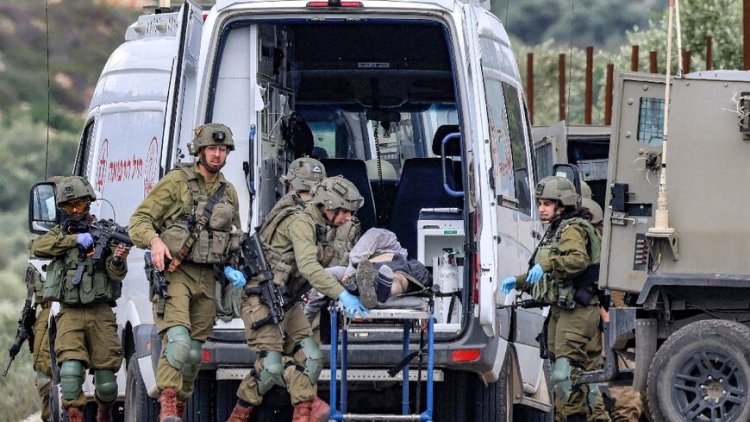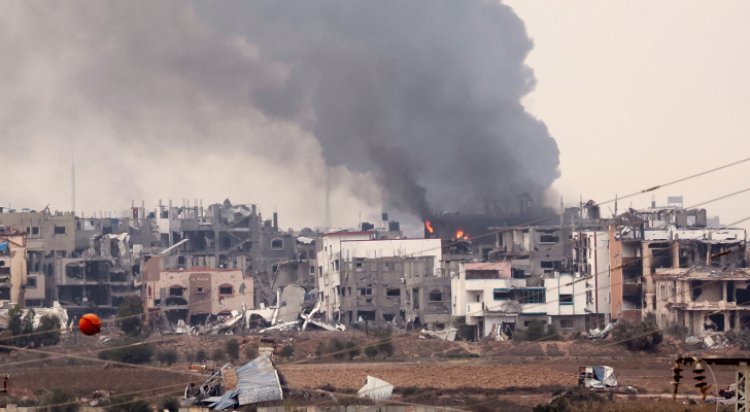Israel bombs Gaza by land, air and sea at the beginning of the new year

At the beginning of the new year, Israel launched artillery, air, and naval bombardment on various areas of the Gaza Strip, killing dozens, according to Palestinian reports.
The Palestinian Radio said on Monday that Israeli boats bombed the coast west of Rafah, south of the Gaza Strip, according to the Arab World News Agency.
The radio reported that Israeli artillery also bombed the east of the Bureij and Al-Maghazi camps in the middle of the Gaza Strip, and carried out violent and continuous bombardment around the areas of Jabalia Al-Balad, Al-Tuffah, and the Jabalia Camp. Israeli forces also targeted neighborhoods in the center of the city of Khan Yunis in the south of the Gaza Strip.
Earlier today, Al-Aqsa TV reported about an Israeli bombing on a house west of the city of Khan Yunis, resulting in a number of deaths and injuries.
Palestinian television also reported earlier that 35 people were killed in Israeli strikes on Khan Yunis, noting that there were children among the dead.

In the northern Gaza Strip, Al-Aqsa TV channel said that Israeli aircraft bombed a group of citizens in the Al-Mughraqa area, south of Gaza City, killing six.
The Ministry of Health in the Gaza Strip said that the total number of Palestinian deaths as a result of the Israeli bombing of the Strip has risen to 21,822 since October 7, while the number of injured has increased to 56,451.
Residents and medics said that Israeli aircraft intensified their attacks on the central Gaza Strip on Sunday as battles raged around the ruins of towns and refugee camps in a war that Israeli Prime Minister Benjamin Netanyahu said would take “several more months” before it ended.
Netanyahu's statements do not indicate any possible calm in the military campaign that killed thousands and flattened most of the Gaza Strip, while his pledge to restore Israel's control over the Gaza Strip's borders with Egypt raised new questions related to the two-state solution.

Gaza Strip
The Israeli army announced the demobilization of some reserve soldiers who were called up to fight Hamas in Gaza, a move it said would help the economy as the country prepares for a long-term war.
Air strikes targeted the Maghazi and Bureij areas in the central Gaza Strip, killing ten people in one house and prompting more residents to flee to Rafah on the border with Egypt, away from the lines of Israeli tank movements.

Air strike
Health officials said that six people were killed in an air strike on the Al-Mughraqa area outside Gaza City.
The Gaza Ministry of Health said that 21,822 Palestinians have been killed in Israeli raids on the Palestinian Strip since October 7, amid fears that others may be buried under the rubble.
The war led to the displacement of almost the entire population of the Strip, numbering 2.3 million people.
Israel has prevented the entry of most food, fuel and medicine supplies since October 7.
Israel said that it is ready to allow ships from some Western countries to deliver aid directly to the coast of the Gaza Strip after security inspections in Cyprus.
Gemma Connell, an official at the United Nations Office for the Coordination of Humanitarian Affairs, said that tens of thousands of people who were displaced to Rafah had no property or a place to sleep.
"I am very afraid that the number of deaths we are seeing will increase dramatically because of this ongoing attack and also because of these literally unbelievable circumstances," she added.


 Shrouq
Shrouq 












